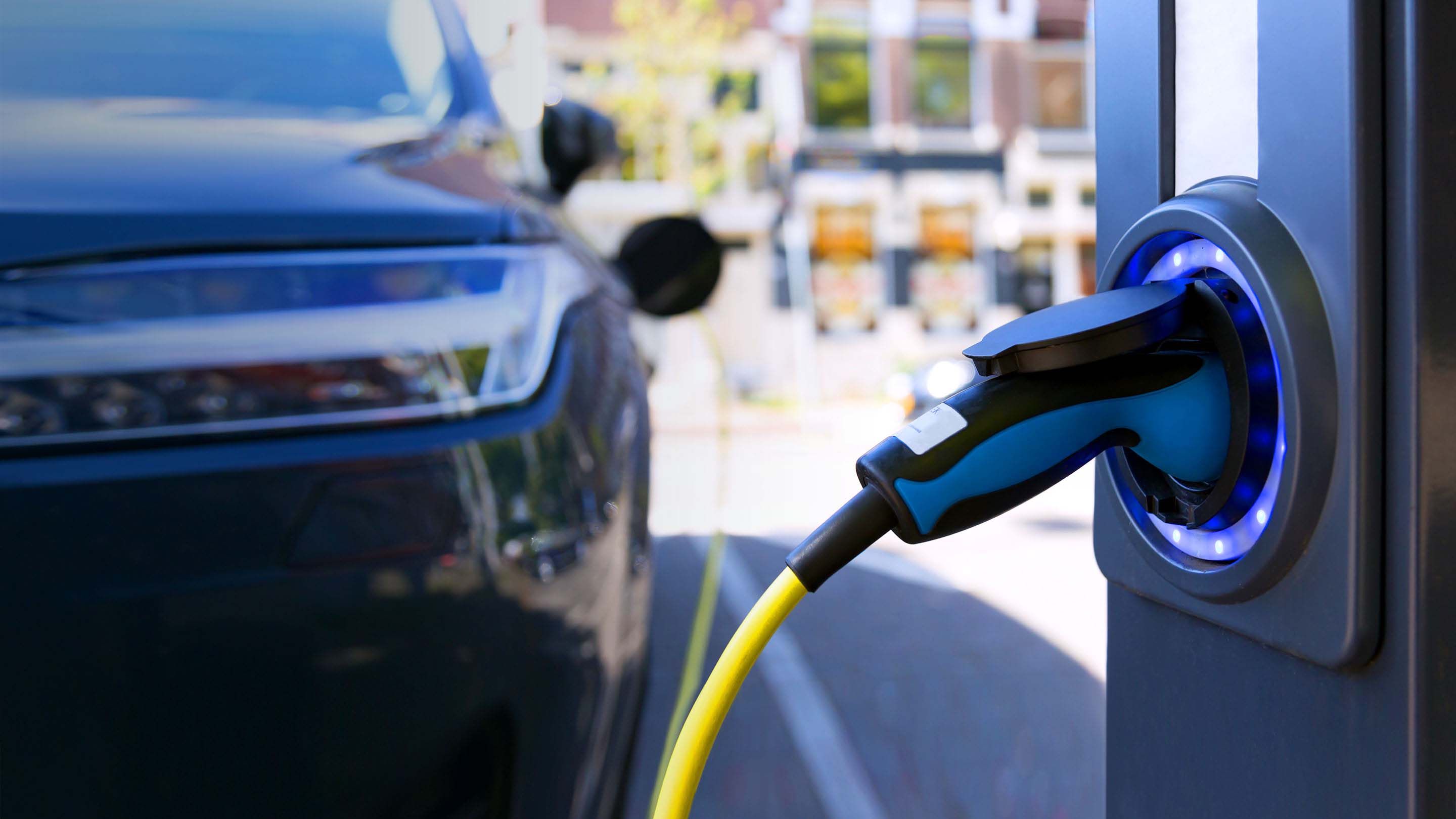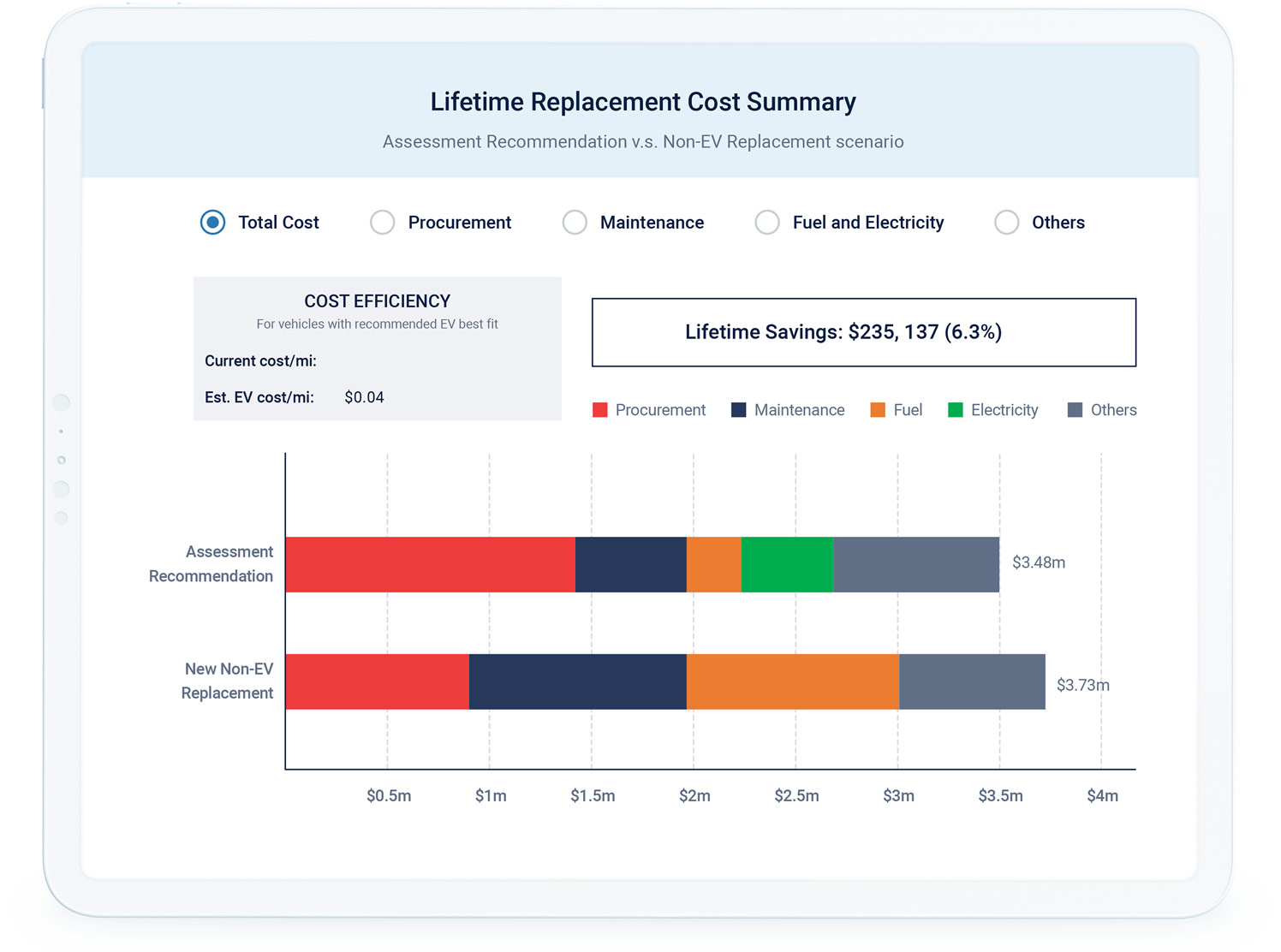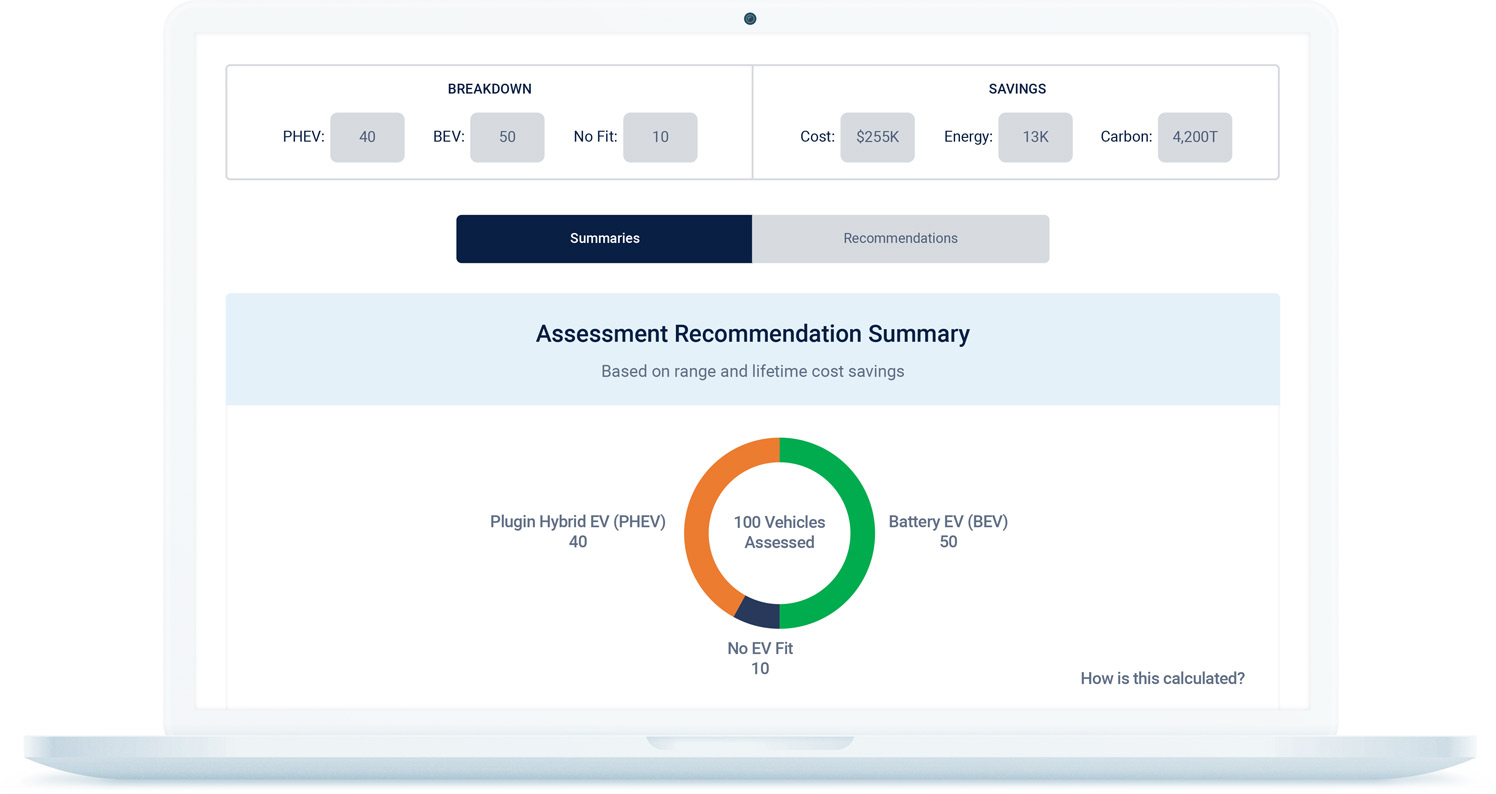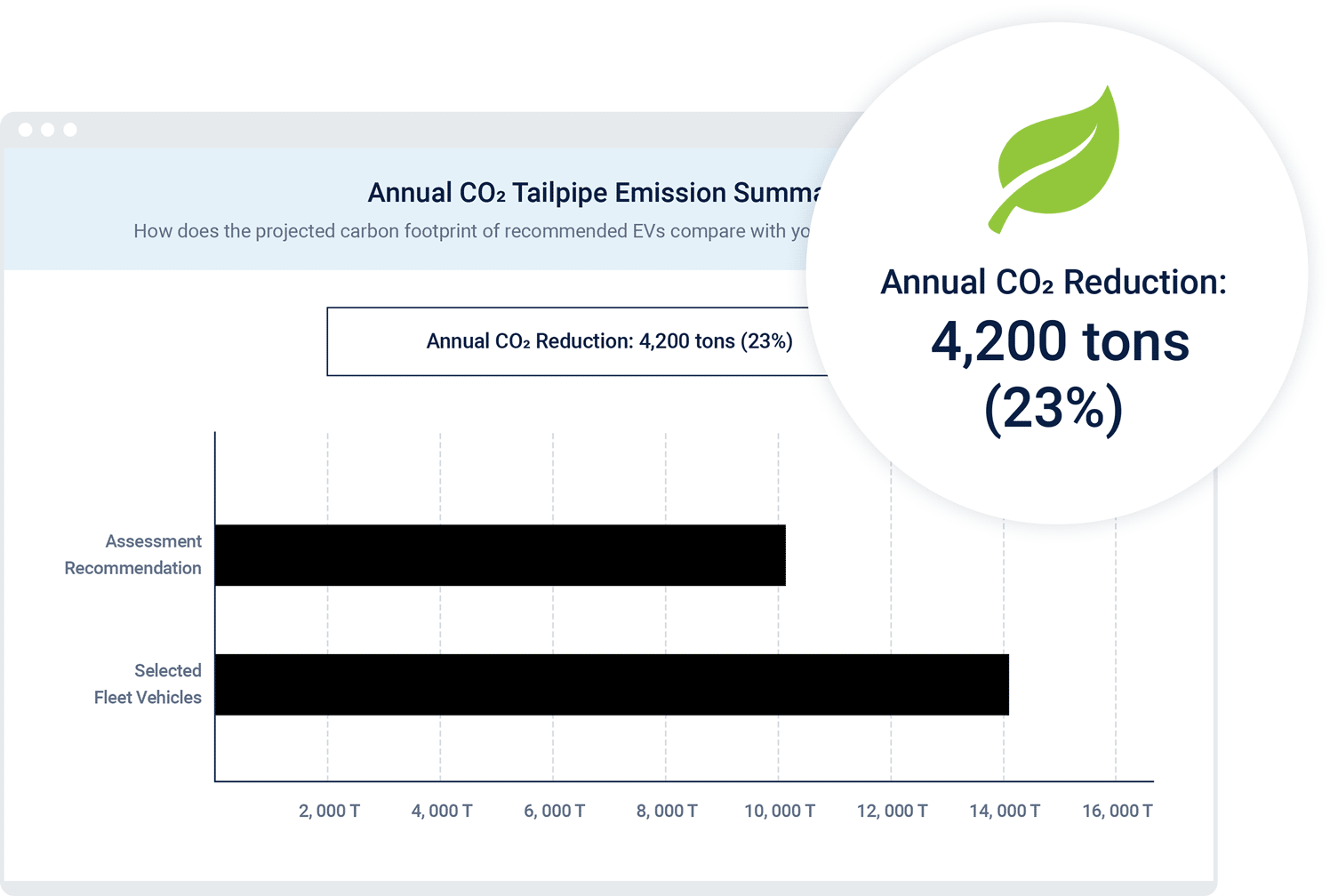
EV Suitability Assessment (EVSA)
What is the EVSA?
Powered by the largest dataset for real-world EV performance, our EV Suitability Assessment offers data-driven EV recommendations to make your transition to electric as seamless as possible. Analyze your fleet's unique driving profiles and patterns to identify the vehicles in your fleet best suited for EV replacement. Receive personalized make and model recommendations that take into consideration: EV availability in the local market, EV performance in extreme weather conditions and financials related to procuring the EVs. Receive a fleet electrification blueprint, which analyzes the total cost of ownership and reveals the potential cost-savings of switching to EVs in your fleet.

Financial analysis
Range assurance


Environmental impact
Quantify the environmental benefits of switching to EVs. Find out how much your fleet’s carbon emissions will go down as well as the overall reduction in fuel compared to the fleet’s actual current stats with electric vehicle suitability reports.

Benefits of the Geotab EV Suitability Assessment
- Identify the best candidates for EV replacement based on actual driving profiles and real-world EV performance data
- Leverage ratings from the EPA and WLTP to include upcoming EV models to understand the future electrification potential.
- Learn which EVs make the most financial sense with a lifetime cost savings analysis
- Understand how much your fleet can reduce CO2 emissions and fuel consumption
- Ensure EVs have the range performance you require even in extreme weather conditions
- Assess multiple electrification scenarios specific to your business quickly with the convenient do-it-yourself tool
Commonly asked questions about the EVSA
What is an Electric Vehicle Suitability Assessment?
An Electric Vehicle Suitability Assessment (EVSA) provides an electrification recommendation based on your fleet's unique needs. Geotab’s EVSA analyses your fleet’s telematics data to create an EV adoption recommendation based on each vehicle’s distinctive driving patterns, taking into consideration range capability and total cost of ownership. It uses real-world EV performance data to determine which vehicles in your fleet have a suitable EV replacement, while highlighting the financial and environmental impact of making the switch.
What is the role of telematics in an EVSA?
Telematics is a key component in determining a fleet's electrification potential via an EV Suitability Assessment (EVSA). Before doing an EVSA, Geotab's telematics device records the driving patterns of the fleet's gas and diesel vehicles to use as a basis for the assessment. During an EVSA, Geotab taps into telematics data to compare which EV models can best service the fleet's range requirements. The Electric Vehicle Suitability Assessment leverages:
- the largest set of real-world EV performance data
- ratings from the EPA and WLTP on upcoming EV models, and
- data on speed, trip patterns (e.g. idling) and environmental factors like localized ambient temperature for increased accuracy.
What does EVSA stand for?
EVSA stands for Electric Vehicle Suitability Assessment. It is a tool that helps fleet managers create a blueprint for electrification. The EVSA delivers the data analysis needed to make the case to transition a fleet to electric in a way that makes sense for the fleet's needs, organization's budget and time frame.
What are the benefits of an Electric Vehicle Suitability Assessment?
A key benefit of an Electric Vehicle Suitability Assessment is that it can save fleet managers time by making it easy to pinpoint fleet vehicles that can be replaced by an equivalent EV based on their function and range requirements. The EVSA compares EVs based on factors such as:
• Total cost of ownership (includes retail price, maintenance costs, fuel/electricity costs and other expenses)
• EV type (Battery Electric vs. Plug-in Hybrid)
• Vehicle class
• Range
• Local availability
What is an electric vehicle adoption report?
An electric vehicle adoption report from Geotab's EVSA provides an accurate understanding of which fleet vehicles could be replaced by an electric vehicle at lower cost than a replacement internal combustion engine vehicle. This analysis covers the type of vehicle, range capability requirements and the total cost of ownership.
Which vehicles can be replaced by electric vehicles?
The first step to making a well-informed investment in electric vehicles is to identify the needs within your fleet and seek out the vehicles that will best address that need. Understanding the driving patterns of your fleet and your existing vehicle's operating costs is required. Using telematics data to identify existing driving profiles can be a helpful starting point for deciding whether to switch to electric vehicles.
How long does it take to convert to an electric vehicle fleet?
There is no fixed timeline for a switch to electric vehicles. Each fleet carries out different operations and has different replacement cycles for their vehicles. If you are developing a timeline for electrification, it is important to build an overview of the needs within the fleet, your goals and your budget.
